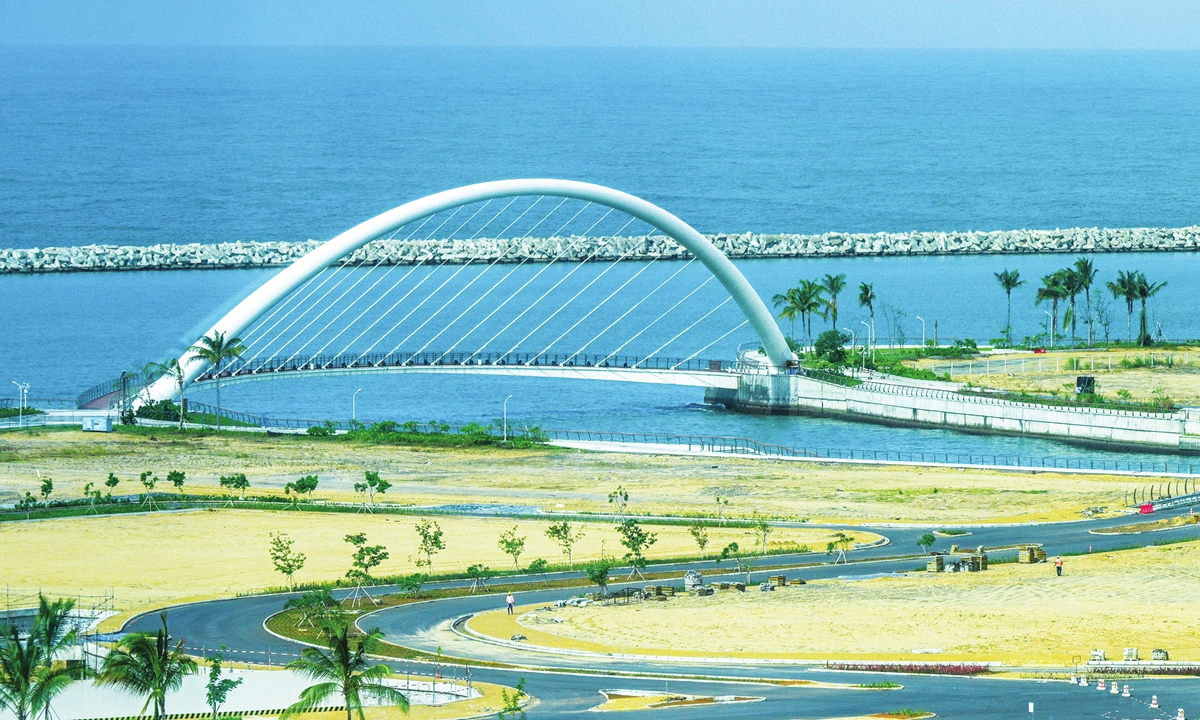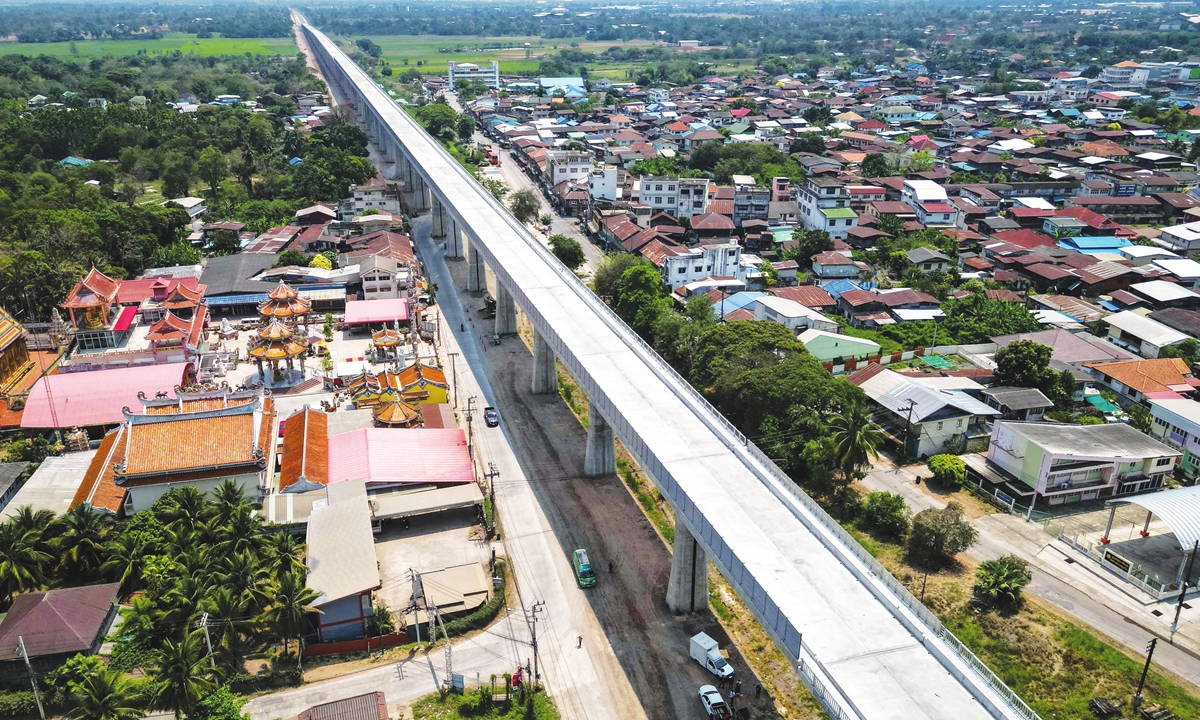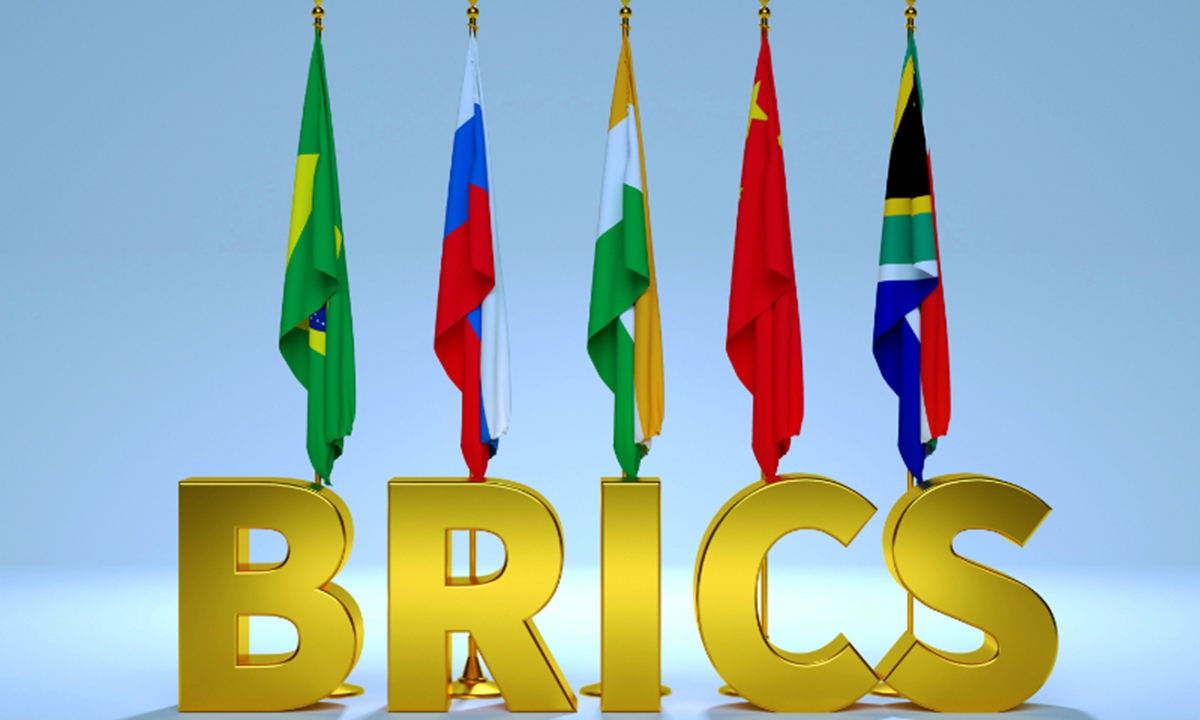
A general view of the Chinese-funded project for the Port City Colombo in Sri Lanka on July 6, 2023. Photo: AFP
Editor's Note:
This year marks the 10th anniversary of the Belt and Road Initiative (BRI) proposed by Chinese President Xi Jinping. Through the lens of foreign pundits, we take a look at 10 years of the BRI - how it achieves win-win cooperation between China and countries along the Belt and Road and how it increases people's sense of fulfillment in these countries.
Maya Majueran (Majueran), director of Belt & Road Initiative Sri Lanka, discussed these issues with Global Times (GT) reporter Wang Zixuan. He also talked about the challenges and expectations of the BRI in the near future.
This is the sixth piece of the series.
GT: This year marks the 10th anniversary of the BRI. What do you think of its progress and achievements? How have South Asian countries benefited from the BRI and what impact has it had on the region?
Majueran: If you talk about the BRI when it started, people were not very familiar with it, and then it started to get popular. If you talk about this year, the BRI has made a lot of impacts, especially when it comes to infrastructure. There are a lot of investments that have been done, which is bringing employment, which is one of the major issues in South Asia.
Sri Lanka has got the highway, but the Western countries and some critics said that China brings the loan and puts us in a debt trap. But again, China's BRI clearly brings mutual benefits. So it's up to the government or policymakers to decide how to make it more beneficial for both countries. It's not fair to blame only the donor China and all Chinese projects that are coming. It's about what choice you want, that's also a very important part.
GT: How has the BRI been recognized by the local people?
Majueran: Maybe it's very good. People know there's a massive project going on. But the problem is that we have got a colonized mentality. We always think anything from the West is good, anything from the East is not good. The reputation of the BRI is building, but it takes time to replace the West. However, the perception is changing. Now there is the new Global Development Initiative, and it's bringing more value.
People are thinking that now there's a new world that is coming. They see that China has decent public transportation and these BRI projects are helping. Changes are happening, although on a very slow scale compared with Africa, people are recognizing it. Some people still don't understand, and I get really annoyed.
GT: Some Western media is hyping up that China is "debt-trapping" Sri Lanka. You have mentioned the view that the so-called China debt trap is a conspiracy led by the US. What do you think the US and the West hold and spread this view?
Majueran: They don't have money and can't do anything. Now somebody is doing what they don't want others to do. This is one of the big challenges. I know that Chinese media are working hard to change this perception. They are doing a great job. There are people coming up and they are raising their voices. It takes time. I don't know how far, but to be honest it's happening.
Now they are putting another narrative, saying that China produces the debt trap and all these dramas. Chinese President Xi Jinping comes up with the high-quality BRI, and now the high-quality BRI is coming in, all the things make it more attractive and more competitive.
GT: The US proposed similar initiatives, such as Build Back Better World. The EU also planned to build the Green Policy Dialogue Facility to support the construction of Sri Lanka. What do you think about these initiatives and their implementation in Sri Lanka and in South Asia?
Majueran: They are talking about how many initiatives they put forward, but there is no action. Let me tell you about my experiment a few years ago in Somalia. I asked local people what is going on, and they talked about the comparison of US investment and China's investment. China's investment is real - on the second day, you will find the Chinese working on the street. But if it is the US fund, they talk at the end of the day but never come into this. This is the thing that we are seeing from the developing world. For us, the BRI is attractive compared to previous countries because it is not just about talking. So we feel like now we don't want promises. We want actions.
GT: From your observation and experience, what are the opportunities and challenges for the Belt and Road Initiative in South Asian countries? What are your expectations for the quality development of the BRI in the next decade?
Majueran: We have a lot of expectations here as a developing country. Take Sri Lanka for example, we want foreign direct investment. Then we are talking about helping us to do more trade, which is one of the important parts, trade is the backbone of every economy. These BRI projects are now taking the non-US dollars form, so we make sure that there should be a form of non-US trading that has to link together. Then the trades will be started to do in a different thinking.
The other thing is skill capacity building or training, human resource development is happening. Also, we'd love to have part of the manufacturing of Chinese factories sitting in Sri Lanka and doing it. We see that we get the opportunity as well. It's not only about trade and construction but also includes manufacturing and production. Those can be linked together. It will be more quality development.


